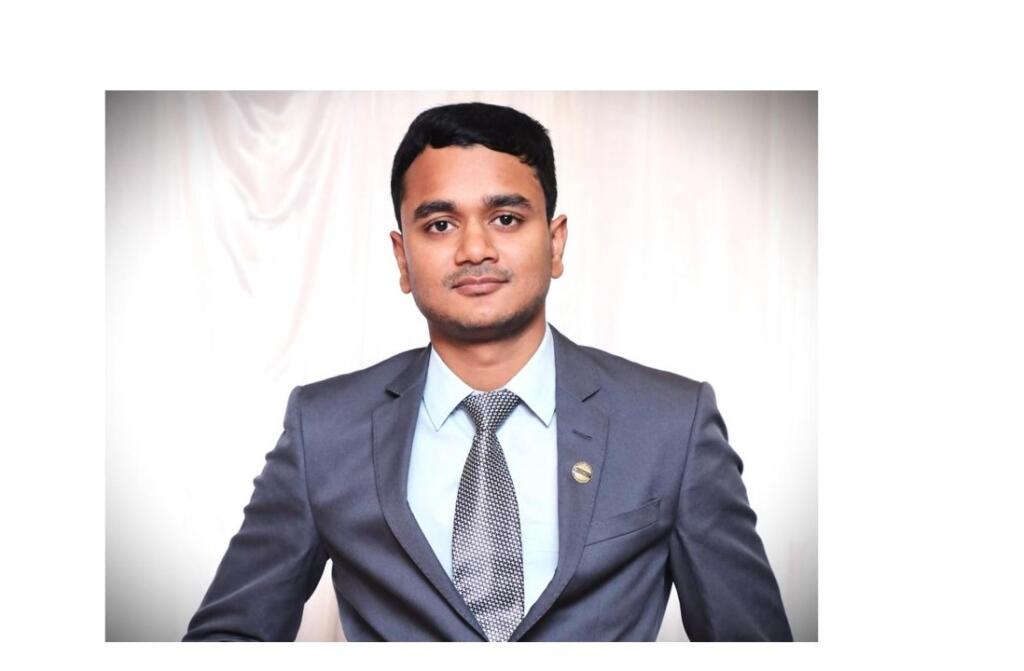In the vast expanse of space exploration, the Indian Space Research Organization (ISRO) has made remarkable strides, pushing the boundaries of what was once considered impossible. For missions to be successful, there is a need for seamless collaboration between science, engineering, and operations. It is often challenging to find an individual who possesses expertise in all these areas simultaneously. However, Aditya Vamsi M stands out as a rare individual who finds himself at the junction of these critical fields. His significant contributions have played a pivotal role in ISRO’s success.
As a prominent figure in the organization, he was involved in a lot of missions like Astrosat, the Mars Orbiter Mission, Chandrayaan-2, and many more, making India proud and further elevating ISRO’s global reputation. Whether its designing innovative ML algorithms to monitor satellites, fixing various technical issues, or spearheading seamless operations, Aditya’s expertise and dedication have been instrumental.
He doesn’t subscribe to the idea of working on tasks related to just one domain. He likes to challenge himself by always learning something new. Although he started working primarily in operations, he made an effort to work on developing infrastructure for the operational backend, dipping his toes into software development. He also developed algorithms using advanced orbital mechanics to do payload planning. Not only that, but he was also successful in ensuring smooth operations using AI.
Journey to ISRO
Aditya’s journey into the world of space began with a strong educational foundation. He holds a bachelor’s degree in Avionics from the Indian Institute of Space Science & Technology, the only institution in Asia which is dedicated to teaching space studies. His academic pursuits provided him with a solid understanding of the theoretical aspects of space, engineering, and computer science.
He never imagined himself working as a space scientist until he joined ISRO. He always wanted to work on something interesting, but he hadn’t yet found his passion. “Stars aligned,” he says, and he is where he is now.
Landing on the moon
One of his notable projects that he has been working on is Chandrayaan-2. For the past several months, he and his team have contributed to the design and implementation of orbit maneuver operations for the spacecraft aiming to place the orbiter in a 100 km x 100 km lunar orbit. This mission was a significant mission for India, as it aimed to land a rover on the Moon’s surface, showcasing the country’s technological capabilities on a global stage.
However, he is a bit sad that the attempt to land near the south pole of the moon part of the Chandrayaan-2 mission ended just 2 kilometers from the moon’s surface. He said they don’t call hard feats of accomplishment “moon shots” for no reason. He is confident that ISRO learned a lot from the mission, and they will definitely succeed in the next moon mission.
Integrating AI into Operations
As a senior scientist, Aditya held a critical leadership role, overseeing a team of 5 engineers in developing and integrating machine learning algorithms for monitoring multiple satellites. In this position, he was responsible for making high-level technical decisions, setting project priorities, and signing off on key decisions. Through rigorous testing and iterations, Aditya guided his team to successfully integrate these algorithms into the operational framework, a complex process that required his constant oversight and decision-making.
The anomaly detection system has been designed to analyze vast amounts of complex data in real-time, swiftly identifying subtle patterns and potential issues that would be nearly impossible for humans to detect. This system helped proactively identify anomalies and solve problems before they impact spacecraft performance.
This work has already detected several critical anomalies, enabled proactive actions and saved missions worth hundreds of crores of rupees. This has significantly increased the lifespan and reliability of multiple high-value spacecraft, ensuring the continuation of vital scientific missions. This work is truly innovative and is paving the way for a new era of proactive, data-driven approaches to ensure the health and longevity of critical systems.
With visionaries like Aditya Vamsi at the forefront, ISRO is poised to achieve even greater heights, inspiring the next generation of space explorers and solidifying India’s position as a true pioneer in the final frontier.
